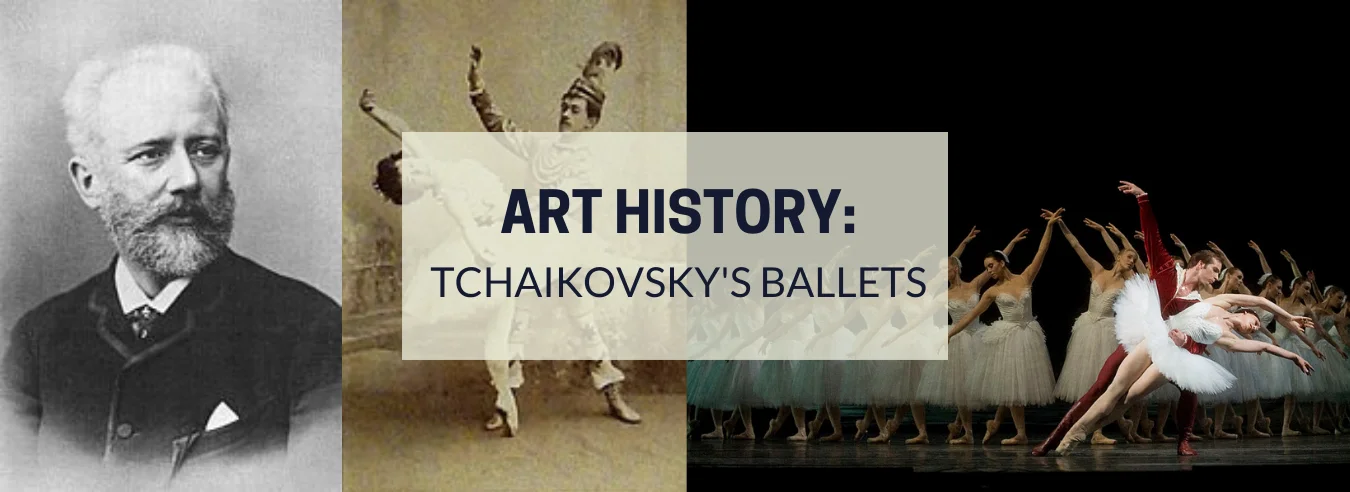With spring in the air, one usually thinks of the flowers and trees in bloom…
7 Classical Composers to Discover
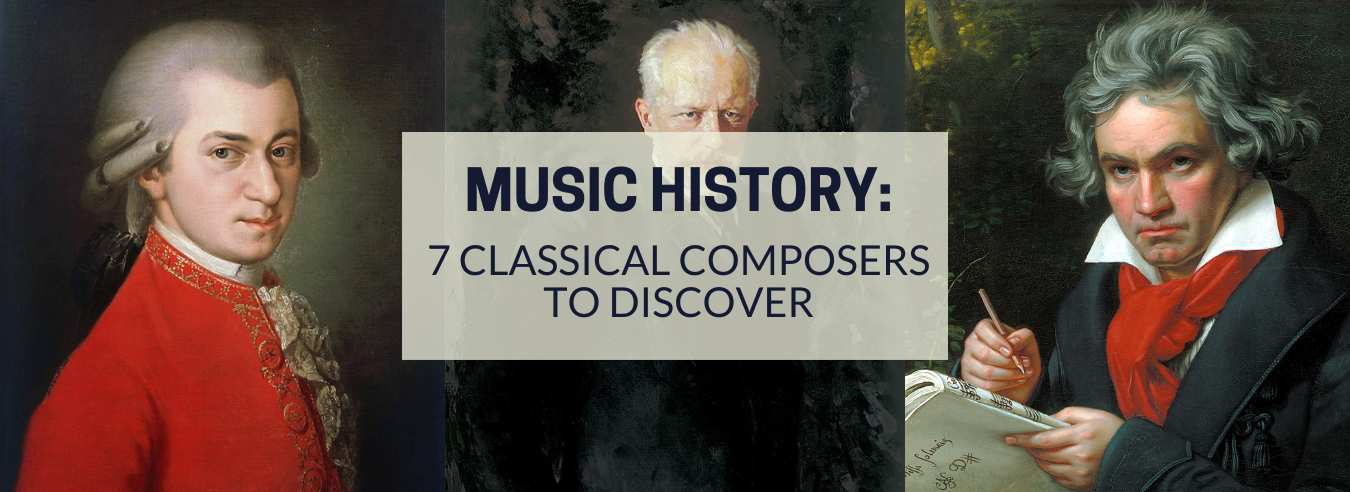
Classical music and the composers who spent their lives creating it hold a special place in history and in many of our hearts. Long before the popularization of modern genres such as jazz and rock and roll, classical music was the contemporary and leading music of the time. Classical composers built a life and career around their instruments, perfecting and sharing their craft with the world. Audiences would flock to churches and concert halls to listen to beautiful compositions from the likes of Handel and Bach.
Although instrumental music still has a place in today’s modern world, especially in film and other forms of media, classical music remains an important and valued treasure. The work of history’s famous classical composers is still lovingly brought to life by philharmonics and musicians from all over the world. Centuries later, these composers continue to awe and inspire us with their talent and mastery.
Together, let’s delve into the extraordinary legacies of these seven classical composers.
Johann Sebastian Bach
In the mid-1800’s, music critics and composers praised the work of “the three B’s” of classical music: Johann Sebastian Bach, Ludwig van Beethoven, and Johannes Brahms. Born to a large family of musicians, Bach sought to make a name for himself. Having lost both parents at only ten years old, he threw himself into his studies and gained a musical education at the prestigious St. Michaelis School in Luneburg. Bach’s hard work and talent ensured that he found employment soon after graduating. He worked as an organist, court musician, and keyboardist at various churches, all while composing extensively. His work includes vocal cantatas, oratorios, and arias, while his instrumental compositions range from concertos and suites, to sonatas and fugues.
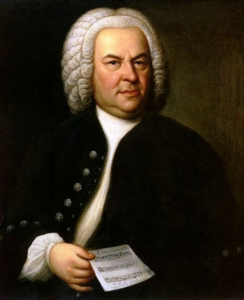
People turn to Bach when they are in need of music that is serene and calming in its beauty, such as the Goldberg Variations.
George Frideric Handel
In listening to his compositions, there is no denying that Handel had quite the dramatic flair. Some historians believe Handel’s father forbade him from learning and practicing music as a boy. It was perhaps this childhood experience that ensured that Handel would dedicate his entire career to music as an adult. Known as one of the premier Baroque composers of the 18th century, his work focused on operas, oratorios, and organ concertos. With a staggering 42 operas and over 120 cantatas, Handel is one of the most prolific composers of his time. Handel’s style is characterized by powerful vocal solos, accompanying harpsichords, and beautiful strings.
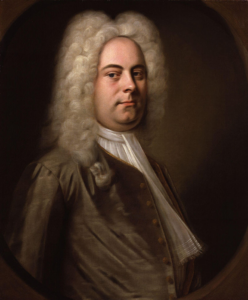
This gorgeous duet composed by Handel perfectly encapsulates what makes his dramatic work truly captivating. Via Wikicommons.
Pyotr Ilyich Tchaikovsky
Many of our most beloved composers had humble beginnings. Tchaikovsky’s life, for example, was completely changed when he was able to attend the Saint Petersburg Conservatory. A place of learning that was typically reserved only for aristocrats, the conservatory exposed Tchaikovsky to Western thoughts and ideas. His education helped him compose for a wider audience and set him apart from other Russian composers. Tchaikovsky went on to create world-famous compositions, including Swan Lake and The Nutcracker. Tchaikovsky’s ballets and operas feature traditional orchestral instruments such as violins, cellos, oboes, clarinets, trumpets, and trombones. His work is often described as highly romantic, sumptuous, and achingly beautiful. Although during his time Tchaikovsky’s work was criticized for being overly sentimental and breaking from Western principles, today he is considered to be one of the most beloved classical composers.
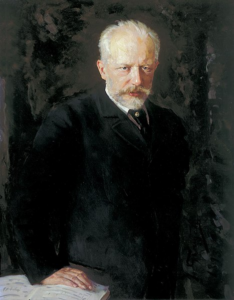
The Waltz of the Flowers from The Nutcracker instantly conjures up dreamy, romantic imagery. Art by Nikolai Kuznetsov.
Antonio Vivaldi
Born in Venice, Italy, Vivaldi learned to play the violin from his father at a young age. This early exposure to music taught him just how much it could enrich a person’s life. As an adult, Vivaldi began to work at an orphanage, sharing his gift of music by teaching the children there. He quickly became the music director of the institution and his students began to gain a reputation for their talent. Vivaldi composed concertos and operas during his thirty year career at the orphanage and became a highly respected and lauded composer and teacher. His violin concertos, in particular, became a model that other composers have aspired to. Known as a violin virtuoso, his most fluid and poetic work features string instruments as the focal point.

Vivaldi’s concertos often featured violins as the primary focus of his moving works. Art via Wikicommons.
Wolfgang Amadeus Mozart
When people think about classical composers, the name that most commonly comes to mind is Mozart. Through the years, Mozart has been the subject of countless novels, documentaries, and dramatic films. The details of his life and the talent he possessed makes it clear why he is an immensely popular subject. Mozart composed his first work when he was just five years old, and those around him quickly realized he was a child prodigy. In his short, thirty year career, he composed over 600 pieces of music ranging from symphonies and concertos to operas. Mozart’s genius was such that he could improvise an entire musical fugue on the spot. He influenced and inspired the work of countless composers that came after him and many still look back at his work as the pinnacle of the Classical period.
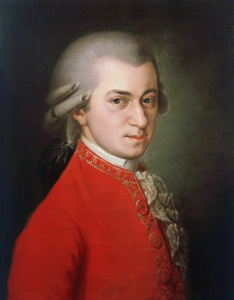
Many of Mozart’s compositions, such as Lacrimosa, have a haunting and cinematic tone to them. Art by Barbara Krafft.
Johannes Brahms
Born in Hamburg, Germany to a working class family, Brahms is the perfect example of an artist who went against his family’s expectations. Though he was incredibly gifted as a pianist, his teachers and parents felt he was squandering his talent by spending his days composing instead of performing. Had Brahms conformed to their expectations and focused on performing, the world would have missed out on his uniquely romantic musical expression. Brahms was known as the champion of traditional compositions, a break from the German composers of the time who sought to create a more opulent “new German” style. Through his friendship with violinist Eduard Reményi, Brahms was exposed to gypsy music. His love of folk music inspired his style of compositions, evident in his use of irregular rhythms and rubato.
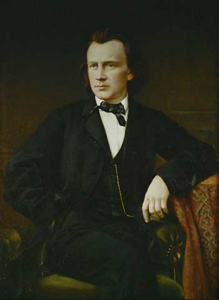
A skilled pianist, Brahms was known for debuting his piano compositions. Art by Josef Novak.
Ludwig van Beethoven
Being the grandson of a musician and the son of a singer, Beethoven was surrounded by music from his early childhood. His father recognized a budding talent that he nurtured, though sometimes with harshness and rigidity. His teachers were not any easier on him, but this, in turn, afforded Beethoven a wealth of support and experience. It was in Vienna, the international center of music at the time, that his career took off. When Beethoven was not yet twenty, he began to lose his hearing. Although this made performing difficult, he continued to compose an incredible amount of work. From symphonies and concertos to sonatas and more, Beethoven did not let his failing health stop him. Many believe that Beethoven poured his feelings of anger, desperation, and regret over his loss of hearing into his work, leaving the world with truly moving, personal messages hidden in his music.
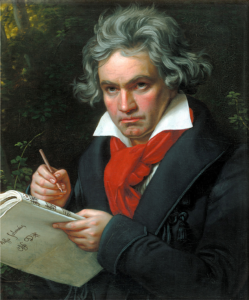
The middle period of Beethoven’s extensive work is called the “heroic” period because of the grand, rising intensity of his compositions. Art via Wikicommons.



